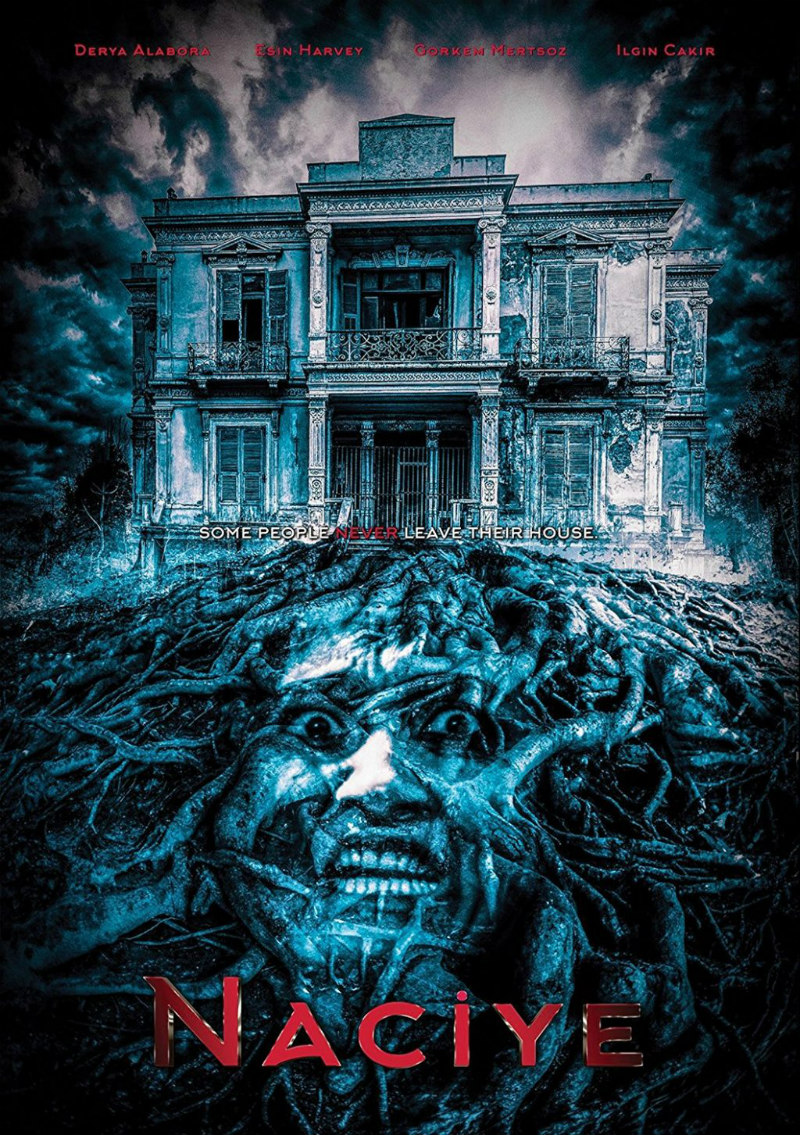
Review by Benjamin Poole
Directed by: Lutfu Emre Cicek
Starring: Derya Alabora, Esin Harvey, Görkem Mertsoz, Ilgin Cakir

In his still seminal 1981 examination of horror fiction, Danse Macabre, Stephen King suggested that the effects of horror upon an audience function within a dwindling hierarchy of creative outcomes; ‘I recognize terror as the finest emotion and so I will try to terrorize the reader. But if I find that I cannot terrify, I will try to horrify, and if I find that I cannot horrify, I'll go for the gross-out. I'm not proud.’ Like comedy, which serves to make us laugh, horror also operates by creating a qualitative emotional effect. Its success, for most audiences, depends on how far it achieves this aim: how much the film scares or disgusts us. If King could be persuaded to update his 1981 survey (and why not? He tinkered with the first Dark Tower and ‘Salem’s Lot years later. If you’re reading this Mr. King, give it a go! We could do it together!), then the maestro may want to update his diminishing returns model with regards to the stylised transgressions of modern horrors such as The Neon Demon, We Are the Flesh and Turkey’s Naciye, movies where, at a loss of anything else to offer, the film makers resort to a juvenile approach which is even less crafted than gory disgust: shock!


The problem with shock! tactics is that horror fans, with our regular departures into the art of darkness, are pretty tough to shake up anyway, and can usually smell a rat (giant or otherwise) when it’s offered up to us in lieu of something genuinely scary. This is another feature that comedy shares with horror, the pis aller towards offence; you always know when it’s going belly up for a comic when he scrapes out jokes about race or nonces for cheap laughs. Shock! is finite - where do you go from it? Authentic fear, on the other hand, can seem deliciously endless. In fairness to Naciye, the shock! (rape, incest) occurs mainly towards the end, when its short duration is running out, and there’s urgency to fulfil the film’s generic promises.

An early indication of Naciye’s empty gross out nature occurs when heavily pregnant heroine Bengi (Esin Harvey) throws up in the middle of a café following a quarrel with the bloke she’s seeing behind her bae’s back, Bertan (Gorkem Mertsoz). As a veteran of many a Cardiff night out, I can confirm that it is actual vomit that the camera zones in on in a leering monotone close up - a gratuitous moment that serves very little purpose other than to unsettle our own tummies. Bengi’s delicate condition encourages Bertan to book a nice week away on the coast, although Lord knows why: Bengi is a right grump, and doesn’t seem to like either Bertan or the other fella (a character trait perhaps indicative of this film’s latent misogyny)! It turns out that Bengi’s gripes have prescience however, as the house is still clandestinely occupied by a couple of sitting tenants, who harbour deep and dirty secrets, and are also murderously territorial…

Like a home invasion horror in intriguing reverse, after a draggy set up, the film rushes to a visceral denouement when the couple discover the mad old bat who claims that the house belongs to her (Derya Alabora, the eponymous Naciye, coming off like a forgotten character from The League of Gentlemen). It is a shame that the film abruptly descends into breakneck violence in its latter third as there are plenty of creepy suggestions to explore within the Goldilocks narrative: the alien sensation of being in a stranger’s house with other people’s clothes still in the wardrobe, the domestic insecurity that films like À l'intérieur created so menacingly. Suspense, however, is dispensed with in favour of an ambitious but ultimately flat flashback narrative, which tells of the fate of previous occupants (essentially a needless correlation of what’s happening to Ben and Bert). Like that sublimely nasty French masterpiece above, Naciye also features an expectant protagonist. Yet, apart from a few token implications of pregnancy induced hysteria (‘Sometimes old houses make noise’, a spooked Bengi is told), Bengi’s condition seems to be in place only to set up a final, unpleasant punchline, a tableau typical of this silly film’s tedious impulse to shock!

Naciye is available on DVD and VOD now.

